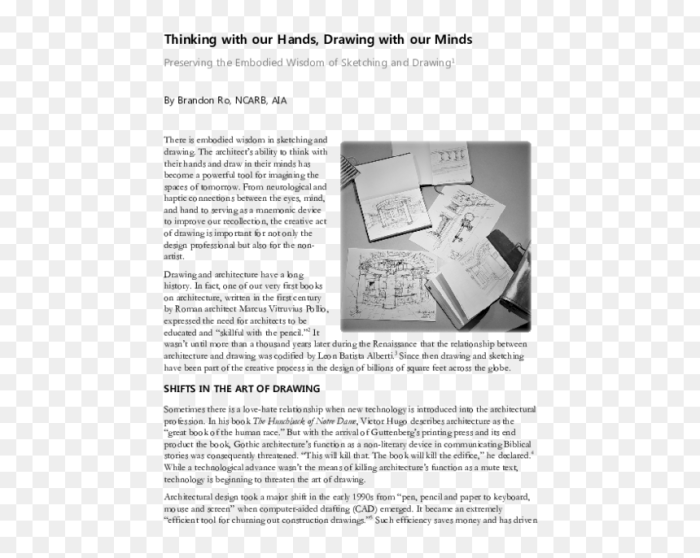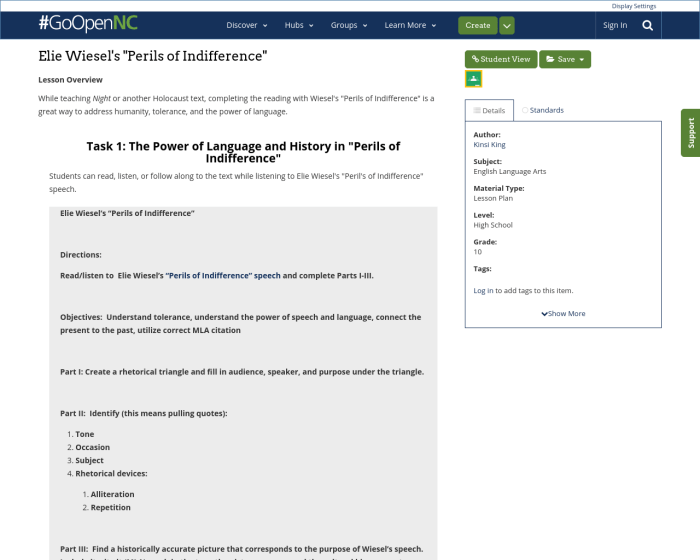Elie wiesel’s the perils of indifference speech answers – Elie Wiesel’s “The Perils of Indifference” speech answers, a powerful and thought-provoking oration, delve into the insidious nature of indifference and its catastrophic consequences. Wiesel, a Holocaust survivor and Nobel Peace Prize laureate, eloquently articulates the urgent need to confront indifference in all its forms, from the apathy that enables atrocities to the complacency that erodes the fabric of society.
Drawing upon his harrowing personal experiences during the Holocaust, Wiesel exposes the devastating impact of indifference, arguing that it is not merely a passive stance but an active force that perpetuates suffering and injustice. Through a compelling narrative and insightful analysis, he challenges us to recognize the perils of indifference and to embrace empathy, compassion, and active engagement as antidotes to this corrosive force.
1. The Holocaust and Indifference

The Holocaust was a systematic genocide perpetrated by Nazi Germany against European Jews during World War II. It resulted in the death of approximately six million Jewish people. Indifference played a significant role in enabling the Holocaust, as many people chose to ignore or downplay the atrocities being committed.
Examples of indifference during the Holocaust include:
- The failure of many countries to provide asylum to Jewish refugees.
- The refusal of many businesses to hire Jewish employees.
- The lack of public outcry against the increasingly oppressive laws and policies targeting Jews.
2. Elie Wiesel’s Personal Experiences

Elie Wiesel was a Holocaust survivor who lost his family in the Nazi concentration camps. His experiences shaped his perspective on indifference, and he often spoke out against its dangers.
In his book Night, Wiesel wrote: “Indifference, to me, is the epitome of evil. It is not just a lack of concern; it is a lack of humanity. It is a refusal to acknowledge the suffering of others.”
3. The Perils of Indifference Speech
In his “The Perils of Indifference” speech, Elie Wiesel warned of the dangers of indifference in the face of suffering.
He identified three types of indifference:
- Indifference of the heart: A lack of empathy or compassion for others.
- Indifference of the mind: A refusal to think critically about the suffering of others.
- Indifference of the soul: A lack of moral courage to stand up for what is right.
Wiesel argued that indifference has devastating consequences, as it allows evil to flourish.
4. Indifference in Modern Society

Indifference continues to manifest itself in modern society in various ways, including:
- The failure to respond to the plight of refugees and asylum seekers.
- The lack of public outrage against human rights abuses.
- The rise of hate speech and discrimination.
Indifference can have a profound impact on individuals and communities, leading to social isolation, apathy, and a breakdown of trust.
5. Overcoming Indifference

Overcoming indifference requires empathy, compassion, and active engagement.
Strategies for overcoming indifference include:
- Educating ourselves about the suffering of others.
- Challenging our own biases and prejudices.
- Speaking out against injustice.
- Supporting organizations that are working to make a difference.
By taking these steps, we can help to create a more just and compassionate world.
FAQ Overview: Elie Wiesel’s The Perils Of Indifference Speech Answers
What is the central argument of Elie Wiesel’s “The Perils of Indifference” speech?
Wiesel argues that indifference is not simply a lack of concern but an active force that perpetuates suffering and injustice, and that it is essential to confront indifference in all its forms.
How does Wiesel’s personal experience during the Holocaust shape his perspective on indifference?
Wiesel’s firsthand experience of the horrors of the Holocaust led him to believe that indifference played a significant role in enabling the atrocities and that it is crucial to actively resist indifference and promote empathy and compassion.
What are some examples of indifference in modern society?
Examples of indifference in modern society include apathy towards social injustice, environmental degradation, and the suffering of others, as well as complacency in the face of human rights violations and humanitarian crises.